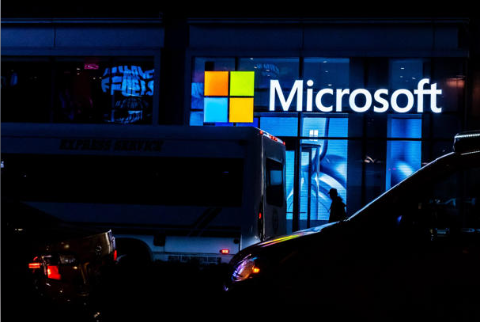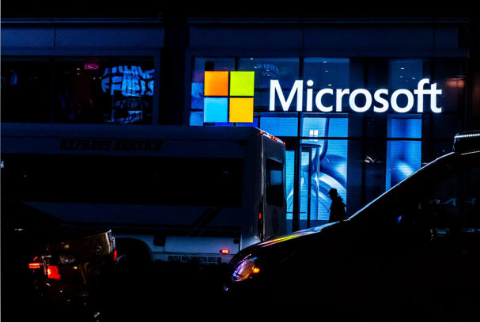the health strategist
institute, portal & consulting
for workforce health & economic prosperity
Joaquim Cardoso MSc.
Servant Leader, Chief Research & Strategy Officer (CRSO),
Editor in Chief and Senior Advisor
What is the Central Message?
Microsoft’s venture capital arm, M12, has been given $275 million this fiscal year to invest in startups aligned with Microsoft’s priorities, particularly in AI, cloud infrastructure, and cybersecurity.
The article discusses the recent strategy shift of M12, moving from a more independent and generalist approach to a more focused investment strategy that closely aligns with Microsoft’s objectives.
Examples and Statistics:
Funding Allocation:
- Microsoft has allocated $275 million to M12 for the fiscal year.
- The fund has remained relatively stable in recent years, typically investing $150 million to $250 million annually in startups.
Investment Portfolio:
- M12 currently has 110 active investments in its portfolio.
- Examples of M12 investments include AI platform Typeface.ai, which Microsoft integrated into its consumer insights platform, and Split.io, a startup whose delivery platform is available to developers using Microsoft’s Azure services.
Historical Context:
- Microsoft founded its VC fund in 2016 under the name Microsoft Ventures, initially investing less than $100 million annually.
Strategy Shift:
- In Jan. 2023, M12 underwent a major strategy shift under Michelle Gonzalez, focusing on investments closely aligned with Microsoft’s priorities such as AI, cloud infrastructure, and cybersecurity.
Strategic Benefits vs. Financial Returns:
- The article suggests that the change in M12’s strategy is a shift from a focus on financial returns to funding businesses that could enhance Microsoft’s own products.
- Microsoft’s $13 billion investment in OpenAI is cited as an example, demonstrating the strategic benefits of investing in companies that align with Microsoft’s objectives.
Integration of Technology:
- Microsoft is using OpenAI’s technology in Copilot, an AI assistant integrated into nearly every Microsoft product. This illustrates how investments can contribute to Microsoft’s emergence as a major player in AI.
In summary, the article highlights Microsoft’s significant investment in its venture capital arm, M12, with a focus on startups aligned with its strategic priorities.
The shift in investment strategy and the examples provided demonstrate Microsoft’s commitment to leveraging external innovations to enhance its own products and maintain a leadership position in emerging technologies.

January 19, 2024
msn / fortune
Rachyl Jones
Microsoft’s venture capital arm can’t take credit for its parent’s blockbuster early investment in OpenAI, maker of the buzzy chatbot ChatGPT. That deal, which helped to transform the tech giant into a leader in artificial intelligence, was handled by corporate leaders.
But M12, Microsoft’s in-house VC firm, does have a lot of powder at its disposal — $275 million this fiscal year — as it looks to invest in the next big thing, two sources familiar with the matter told Fortune. Until now, the number has been a closely guarded secret.
Microsoft replenishes M12 each year with funds from its balance sheet. The amount it gives has remained relatively stable in recent years, the sources said. The fund doesn’t typically spend all of its allotment. In recent years, it has invested $150 million to $250 million annually in startups, said the sources, who requested anonymity due to the confidential nature of the fund’s finances.
Currently, M12 has 110 active investments in its portfolio, it confirmed to Fortune, including AI platform Typeface.ai. Last week, Microsoft integrated the startup’s technology, which helps companies create social content using generative AI, with its consumer insights platform. Microsoft has also invested in startup Split.io and made its delivery platform available to developers using Microsoft’s Azure services.
Microsoft founded its VC fund in 2016 under the name Microsoft Ventures. At the time, the fund invested less than $100 million annually, according to one source.
Last year, M12 (“M” for Microsoft, “12” for the number of letters in “entrepreneur”) underwent a major strategy shift under Michelle Gonzalez, corporate vice president and global head who joined in 2021. The fund had previously operated more independently and invested as a generalist, focusing on financial returns. But in Jan. 2023, Gonzalez announced it would shift to fund startups more closely aligned with Microsoft’s priorities — namely in AI, cloud infrastructure, and cybersecurity.
“Over the last 12 months, we realized startups and Microsoft needed a new M12, and so we developed a more focused investment strategy tightly aligned to Microsoft,” Gonzalez said in a statement to Fortune. “This has helped us create exceptional value through connections, customers, and unique benefits for our portfolio.”
Last year’s change — unwelcome to some within M12, as Fortune previously reported — may stem from a deemphasis on financial returns. For a company like Microsoft with $212 billion in revenue last year, returns on $275 million invested is unlikely to have a material impact on the company. But funding businesses that could enhance Microsoft’s own products may bear greater strategic benefits.
The most obvious example is the company’s $13 billion investment in OpenAI — completed by Microsoft, not M12. With its first round invested in 2019, Microsoft has emerged as a major player in AI. It is using OpenAI’s technology in Copilot, the AI assistant that is being integrated into nearly every Microsoft product.
This story was originally featured on Fortune.com
republished from:
Exclusive: Microsoft gave its venture fund $275 million this year to invest in startups aligned with its mission — Pesquisar (bing.com)












